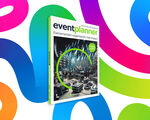How many times have you thought about your attendees before planning an event? "All the time", I hear you saying. "I alwaysthink about my attendees' experience, especially when it comes to the registration procedure, the entrance flow, and the catering", you might be adding.
True, you can’t get those parts right without taking the way your guests act into consideration. However, those are default procedures, meaning that you think about them every time you set up a logistic-related framework. What I’m talking about is if you’ve ever thought about what makes people leave their comfort zones to attend your event.
Do you know the answer to this question? How well do you understand your attendees’ real wants and needs? Most of the time, we believe that the right way to manage an event is to establish clear planning objectives and focusing on 'doing'. We tend to obsess over pursuing the ideal KPIs and a positive event ROI.
This approach, while well-intentioned, makes us goal-oriented, instead of attendee-oriented. We spend all of our time on logistics, management, meetings, battling deadlines, etc., and leave almost no mental space for discovering what our attendees want and designing the right experiences for them.
To help you get a hint about your guests’ motivations, we’ve put a list of the typical expectations they have for your event:
Expectation #1. Options … and a customized experience
There’s one truth you can’t change: Attendees these days want a personalized experience. Whether it’s about creating a personal event agenda or scheduling their own networking meetings, your guests will feel much more comfortable having a list of options to choose from.
The same thing is true for the venue space options. Your attendees will feel grateful if you let them choose different event areas where they could chill, work, or interact with prospects.
This aspect empowers them with a sense of control while also giving them the feeling that they co-created their own experience.
Expectation #2. Surprises and novelty
There’s nothing more boring than attending several conferences in a row, without actually experiencing anything new.
The same registration form, the same accreditation procedure, the same networking areas, the same conference-type formats, the same ice-breaking games, the same cocktail dinners, and the same entertainment moments, over and over again. (Hopefully, at least the catering varies.)
This might be the perfect environment for people who hate change, yet those people are few and far between (we’re looking at you, Sheldon Cooper).
Most people like surprises and seek novelty. When was the last time you innovated or introduced something completely brand-new in the event planning?
Expectation #3. Holistic event experiences
Whether you realize it or not, you are responsible for your attendees’ well-being long before the event starts. In other words, your job is not just about designing and setting up the event.
For example, if you are planning an international event, you also have to take care of guests’ travel and accommodations, as well as the local interactions they’ll have.
This is what your guests want: feeling well-accompanied during all of the entire event-related activities and having a proper holistic experience that doesn’t abruptly end once they leave the venue.
Expectation #4. Meaningful networking and encounters
One of the most important reasons people attend events is to discover new prospects and build fruitful business relationships.
That’s why you need to spend a lot of time and effort on designing the best networking experience. Apart from that, it’s also your responsibility to make sure that the vast majority of the attendees (if not all of them) have something valuable to offer.
Expectation #5. Valuable content and top-notch speakers
Events are great environments for transferring knowledge. People attend events because they want to be ahead of their time and learn firsthand about the topics they are most interested in.
This means that your event’s content is your most important asset.
If you can attract powerful speakers and thought leaders, you’ll up the quality of your event, subsequently becoming a reference point for the attendees.
Final thoughts
Although the word “expectation” sounds pretentious, when it comes to your attendees, their needs aren’t so big.
They want to choose from multiple options, be surprised and engage in new activities, have a holistic experience, build meaningful relationships, and learn awesome things.
Can you offer them what they want?








Thanks for sharing this blog